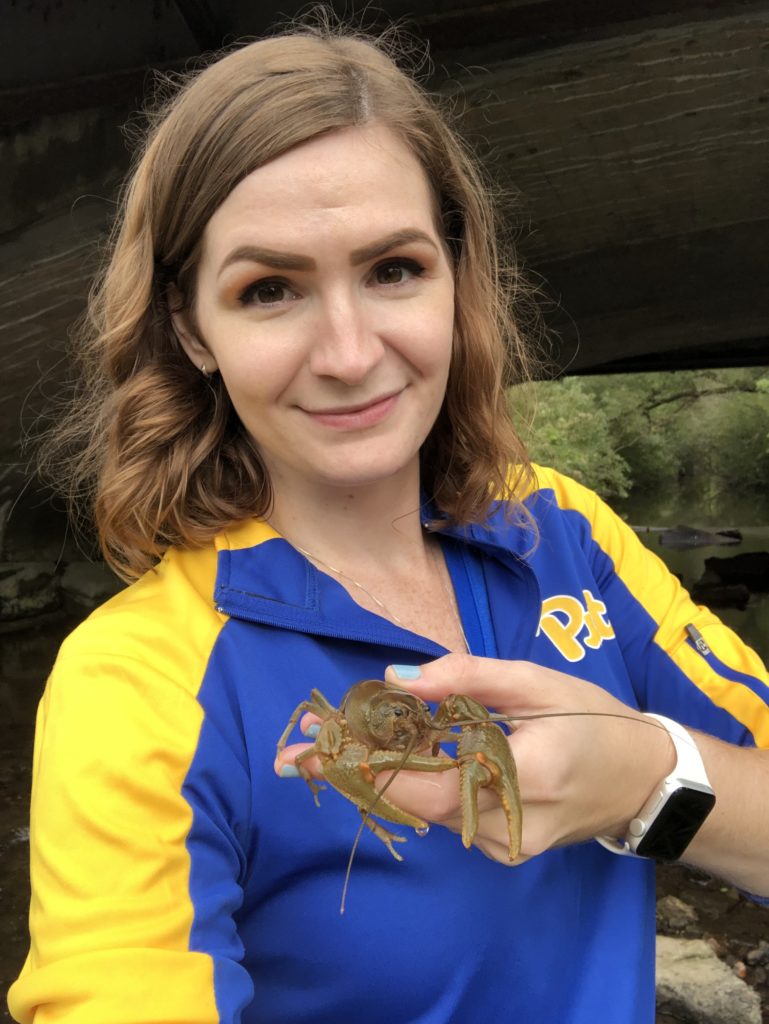by Patrick McShea

At the University of Pittsburgh’s Community Engagement Centers in the Hill District and Homewood, the field of natural history has been well represented in this year’s children’s programming because of the knowledge and enthusiasm of graduate student Audrey Sykes. While she pursues a Doctor of Education degree in Out of School Learning, Audrey also serves as Outreach Coordinator for the university’s Department of Biological Sciences. In that capacity she has repeatedly set-up shop on Saturday mornings in classroom or lab space at the Blakey Center, on Wylie Avenue, for programs broadly billed as a “STEAM Science Saturday” series for topical connections to science, technology, engineering, art, and math.
“The goal of Pitt Biology outreach is to help students further explore concepts taught in the classroom in their own neighborhood,” Audrey explains, “and most of my programs do that through bringing nature into the classroom.” Her programs are designed for students in third through fifth grade, and group sizes have varied from six to more than one hundred students.
The West Liberty University graduate regularly utilizes materials from the museum’s Educator Loan Collection. She credits the authentic objects with “creating learning opportunities,” and her emailed requests to borrow materials often telegraph program plans. A question, months back, about the availability of a set of mammal skulls representing a carnivore, an herbivore, and an omnivore, indicated an upcoming hands-on investigation connecting tooth structure to diet. Likewise, a more recent request for wildlife-related objects to represent “seasonal cycles, nocturnal adaptations, and harvests” foretold fall programs designed to prime students to notice far more about late October than just Halloween decorations.
In considering how she coordinates her own schoolwork with the steady pace of outreach programs, Audrey concludes, “Everything I’m learning is immediately put into practice in the Outreach Program. Choosing the EdD program is one of the best decisions of my life.” Her dissertation project involves the ongoing development, evaluation, and modification of an aquatic eco-systems curriculum, titled Scales to Tails, at four rural high schools in Erie and Crawford County. Recently secured grant funding will enable an elementary version of the curriculum to also be developed. This will be received as good news by some of the participants in the STEAM Series programs at Blakey Center. Under Audrey’s guidance they’ve already tested some of the key activities.
Patrick McShea works in the Education and Visitor Experience department of Carnegie Museum of Natural History. Museum employees are encouraged to blog about their unique experiences and knowledge gained from working at the museum.
Related Content
Changing Seats in Changing Times
Rising Through the Educator Ranks
Carnegie Museum of Natural History Blog Citation Information
Blog author: McShea, PatrickPublication date: November 4, 2021
